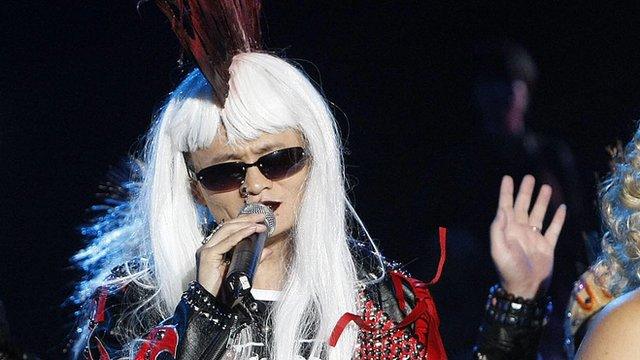Is China's media tycoon Jack Ma the new Rupert Murdoch?
- Published
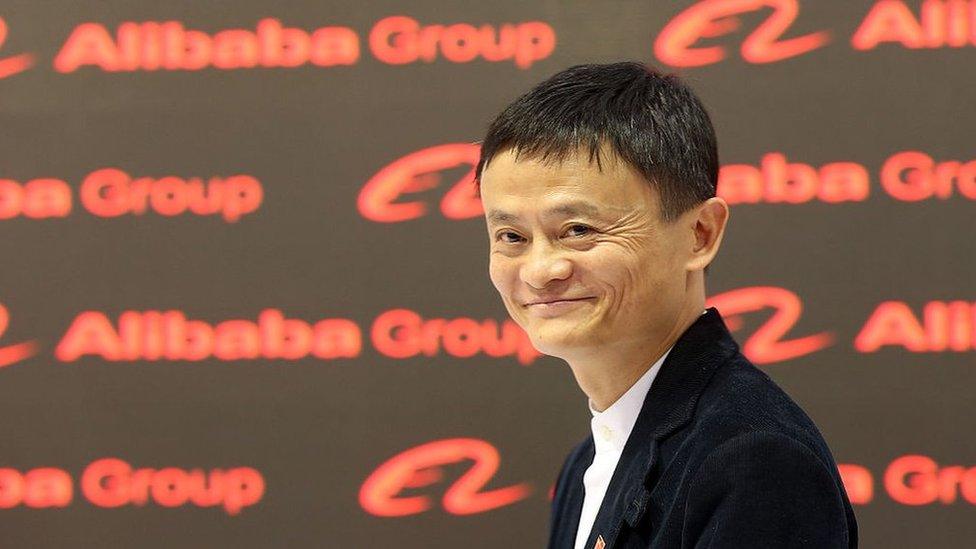
Jack Ma: an online and media tycoon on the move
China's media landscape is changing at an unprecedented pace, thanks in part to dynamic figure of Jack Ma, one of the country's most prominent e-commerce tycoons and founder of the Chinese online retailer Alibaba.
China's propaganda boss Liu Qibao extolled Mr Ma as one of the archetypal individuals seen as "shining calling cards for the image of contemporary China" in a press conference last year.
In December, Jack Ma made the headlines after paying $266m for Hong Kong's oldest English-language newspaper The South China Morning Post.
He is also now reportedly seeking to purchase an undisclosed stake in one of China's most-respected business magazines, Caixin - it is part of a rapidly growing media empire that has caused him to be dubbed by some, China's Rupert Murdoch.
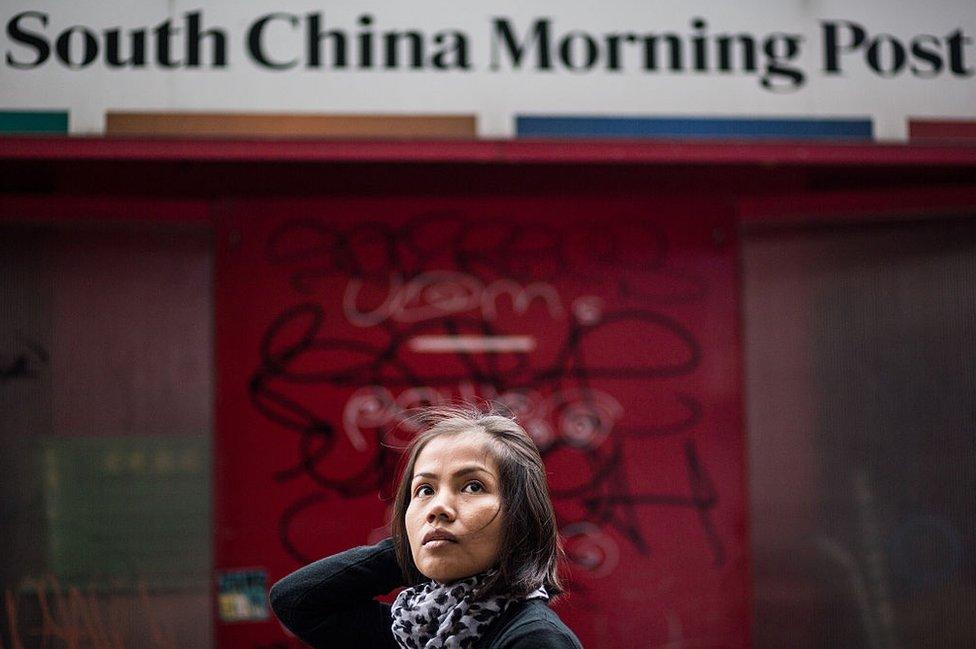
Alibaba has said it will maintain the South China Morning Post's objectivity in the face of fears it will lose its independent voice
Growing empire
And these are not the only media deals Mr Ma has been making in recent years.
Since 2013, the Chinese billionaire has acquired major or minor stakes in newspapers and online platforms, including Business Review, China Business Network and most notably China's largest video-sharing site, Youku Tudou.
He has also invested in social media products like Momo, one of China's most popular dating apps, and Sina Weibo, the country's largest social media outlet.
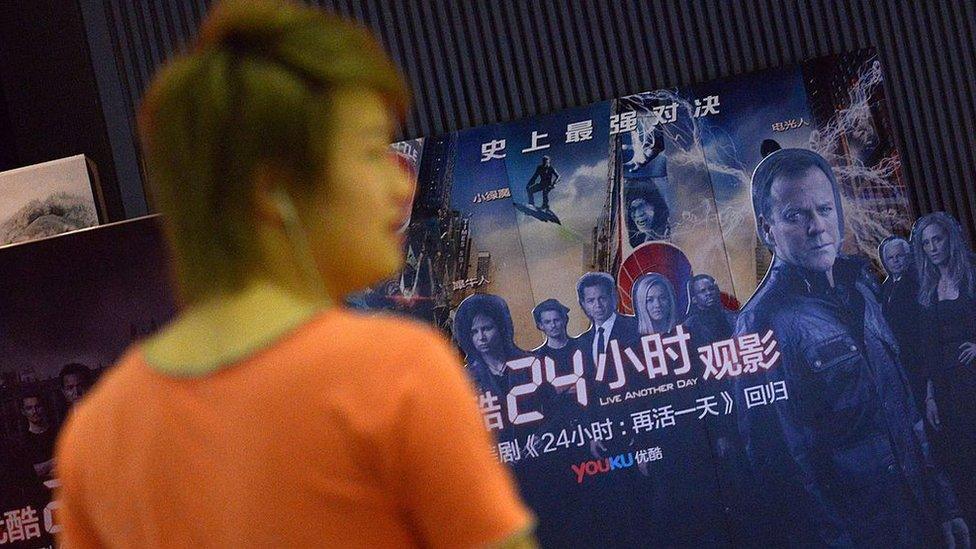
Jack Ma has invested significantly in Youku Tudou, the country's equivalent of YouTube
In 2014 he bought up ChinaVision Media (since renamed Alibaba Pictures) and last year spent $382m to become the second-largest shareholder in Beijing Enlight Media - the maker of hit movies such as Lost in Thailand.
He is also reaching beyond China's borders. Last year he ploughed $200m into Snapchat, one of the most popular social apps among millennials and another $215m into messaging app Tango.
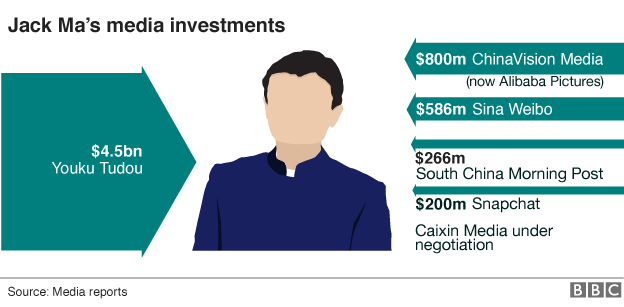
China's Rupert Murdoch?
So how realistic is this comparison made by some Chinese commentators with the US media mogul Rupert Murdoch, whose empire spans Britain's Sun Newspaper to New York's Wall Street Journal?
Those close to Jack Ma's decision-making say that things are more nuanced than this.
"He has increasing investments in media, but I wouldn't go so far as to call him a media tycoon yet," says Duncan Clark, author of Alibaba: The House that Jack Ma Built.
"He's trying to expand Alibaba's offering from just e-commerce into the higher value areas, which middle-class Chinese will spend more on in [the] future," says Mr Clark, who has known Jack Ma since he founded Alibaba in the 1990s.
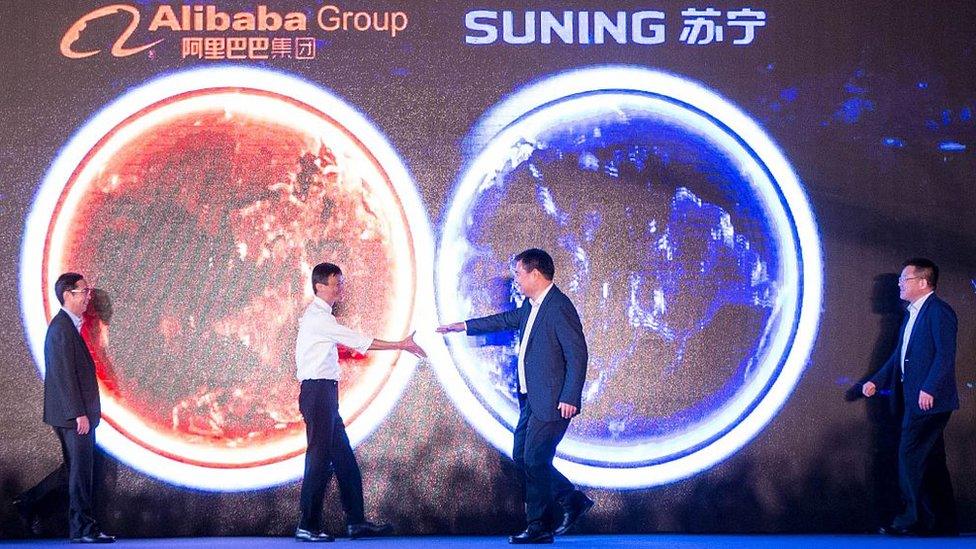
It's not just media firms Alibaba is buying. Last August it bought a $4.5bn stake in the consumer electronics retailer Suning
Ge Jia, an influential Beijing-based tech blogger agrees with this, saying the differences between the two men are significant.
"After all, Murdoch operates in a free media environment that allows him to do everything that makes business sense to him," he tells the BBC, "but China's media environment is different to say the least."
Balancing act
In November 2014, Mr Ma summarised his business strategy as "two Hs": healthcare and happiness, that in his view are the two biggest problems China will be facing in the next 10 years.
The former refers to his entry into pharmaceutical and health-related businesses, the latter to Alibaba's increasing investments in entertainment products such as US Paramount Pictures movie, Mission: Impossible - Rogue Nation.
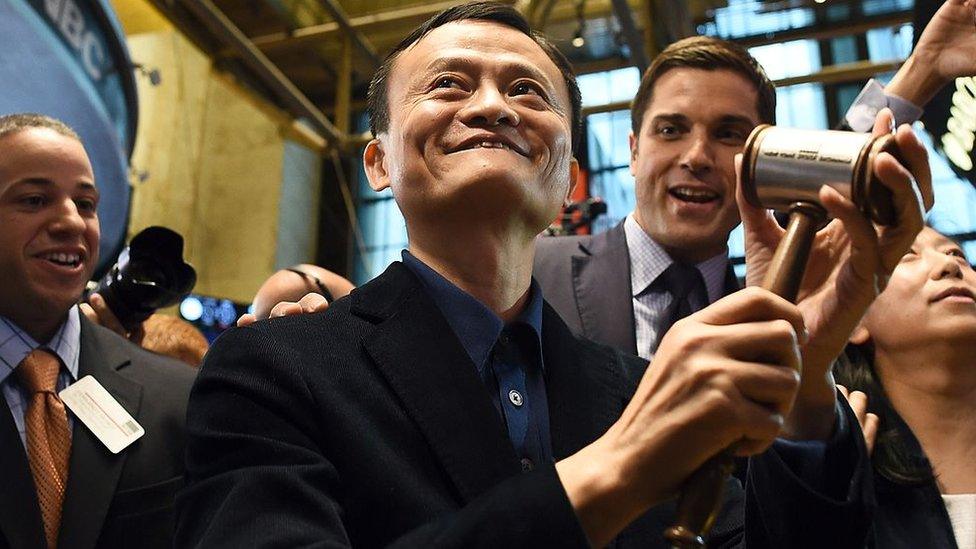
Alibaba now has a listing on the New York stock market
Jack Ma's purchase of The South China Morning Post does show that "he wants to play a role in boosting the prominence and voice of China in the world," says Duncan Clark, but his foray into the media world is not just about politics.
For Jack Ma, areas such as the media - which have long been dominated by the state and state-owned-enterprises - can help him diversify and access higher margin businesses than selling products online, says Mr Clark.
But the process is more like a balancing act, he says: "They have to dance to government's tune to some extent - helping the government do its job - but not be distracted from listening to customers and serving them well."
This is not an easy task, and involves weighing "the increasingly conservative regulation of the media, against the increasingly liberal tastes and interests of younger people," says Mr Clark.
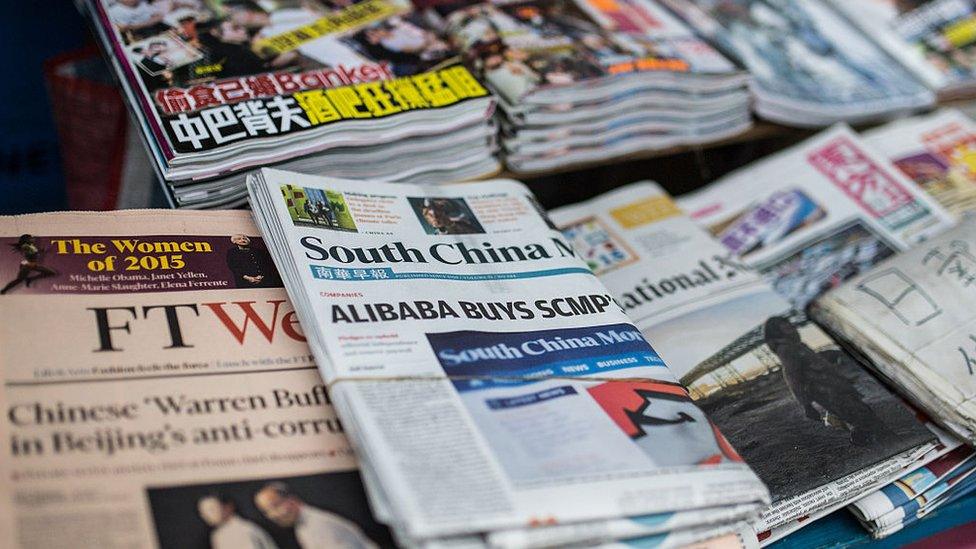
Jack Ma's purchase of The South China Morning Post shows he wants to play a role in boosting China's voice in the world, says Duncan Clark
Potential deal
Some say that in order to achieve his ambitions, Mr Ma has to temper some of the vocal critics of his business practices. One of them is Caixin, whose journalism has long been described as the Chinese equivalent of The Economist.
In March, news broke that Mr Ma's Ant Financial was in talks to purchase a stake at Caixin Media, whose 2011 investigation revealed that Mr Ma transferred Alipay to a firm controlled by him without securing approval from its principal shareholders, Yahoo and Japan's SoftBank Group.
Caixin has confirmed that it is close to completing a round of funding with "several potential new investors" without naming them. It has said it always welcomes "high quality" investors.
Two people close to the deal have told the BBC that it is "still under way".
If the deal is successful Mr Clark says it would be 'a coup' for Jack Ma. "There aren't frankly that many quality domestic media properties [like Caixin]," he says.
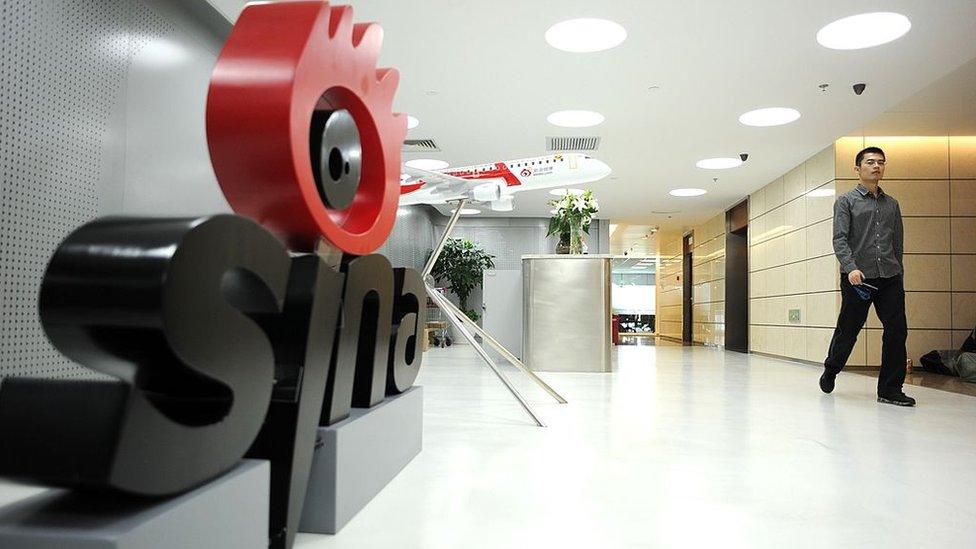
Sina Weibo, Chinas's largest social media outlet, is just one of the businesses in which Jack Ma has invested
But tech blogger Ge Jia, who was taken to the court by Alibaba for his critical comments online in 2014, disagrees.
"To me, it's more of a collaboration than a coup," he tells the BBC.
"Mr Ma needs Caixin's connections and influence; and Caixin needs his money as the business has always been not very profitable."
Mr Ge says while he doesn't think any Caixin deal would make it a foot soldier of Jack Ma - it might still make the business magazine tone down its criticism of Alibaba and Jack Ma's various business practices.
In response to such concerns, Caixin said last month that potential investors would "respect Caixin's editorial independence as our past stakeholders have done, and accept our internal firewall and compliance management arrangements, which will safeguard our credibility".
- Published10 June 2015
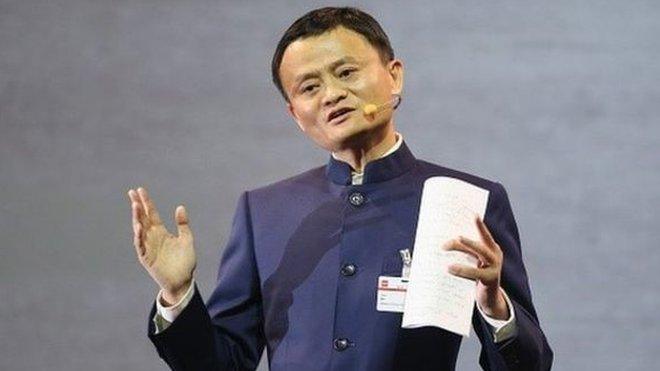
- Published9 June 2015
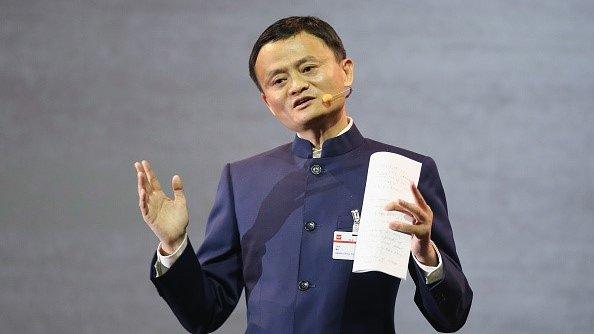
- Published23 September 2014
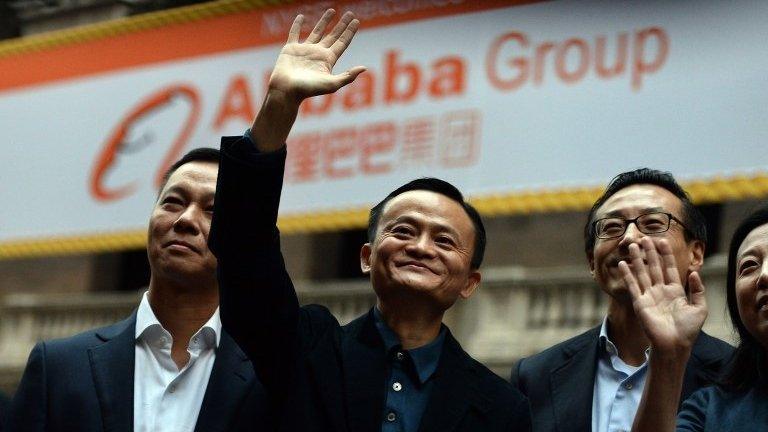
- Published18 September 2014
